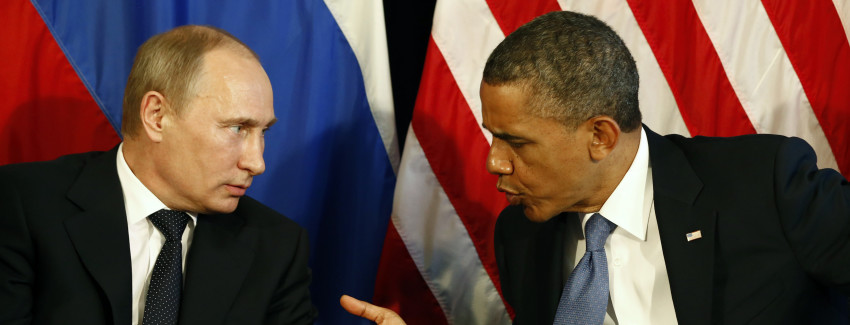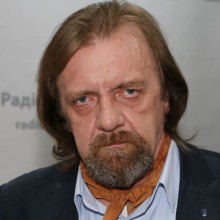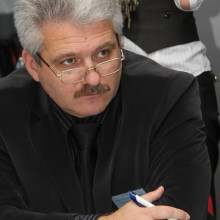Former Ukrainian diplomat, now director of the bilateral relations department of NGO 'Maidan of Foreign Affairs Oleh Belokolos on Russian ideological approach to US and new Putin's Concept of Foreign Policy.
On the eve of the US presidential elections, the current state and the prospects of the US-Russian relations are a frequent subject of the debates and numerous media publications. However, all of them typically concentrate on a particular aspect of the relations, while leaving the general picture outside their focus.
There is no question that the nature of the US-Russian relations is largely determined by their nuclear and missile arsenals capable of destroying both countries. That was recognized by Washington and Moscow during the Cold War and is still generally accepted today. Without a doubt, the relations between two super powers have recently reached their lowest point since the height of the Cold War times. In this context, one should not forget the strategic plans of Putin towards the US that are often masked by Kremlin's assurances of common interests, especially since when those interests differ, so do the tactics of the Russian leader.
As for the tactics, sometimes Vladimir Putin likes to blackmail Washington. For example, that was his approach most recently when he announced his decision to walk away from a long-standing plutonium disposal agreement with the United States. By the way, this attempt to publicly blackmail a counterpart by threatening to pull out of a treaty, in itself, speaks volumes about Mr. Putin's view of the outside world and the US.
Other times he prefers to use the "carrot and stick" approach, for instance, when he kindly offers the US the Kremlin's assistance in combating international terrorism and at the same time, tries to pressure the White House to de-facto recognize the so-called "Russian sphere of privileged interests".
But let's return to the goals. In a country where all media, culture, science, education and public life are almost directly controlled by the Kremlin, more often than not those are voiced by the "prominent figures" in those fields. One of the most famous of them is Russian ideologist, former MGU professor, Alexander Dugin, aptly dubbed by a French journalist "Putin's Rasputin." In his 1999 book "The Fundamentals of Geopolitics" he openly calls for the destabilization of the US by saying "The Eurasian project implies in this respect the Eurasian expansion into the South and Central America with a goal to overcoming the control of the North ... and provocation of all kinds of instability and separatism within the borders of the United States..."
Certainly, these theses of Mr. Dugin will hardly be included in the wording of the new Russian Concept of Foreign Policy that according to the available sources, is now being developed by the Ministry of Foreign Affairs of the Russian Federation. However, contrary to a possible impression, Dugin is no marginal extremist, but rather a high profile "expert" who is praised by the Kremlin and is a household name in Russia. So, his explicit thesis should by no means be dismissed if one wants to understand Putin's current and future long-term plans in respect to the United States.
After all, let's not forget how Russia welcomed and sometimes actually supported the anti-American sentiment in some Latin American countries by all means possible. Also, it's not the first time that a Russian General tells the media that Russian military will cooperate with China on efforts "to fend off a threat posed by the US missile defence program". And it's not an accident that recently the US Intelligence Community had grounds to accuse the Russian Government of interference into the US election process.
It fact, it is not a top secret that Putin's long-term plan includes reducing global political, economic and informational influence of the US, weakening the transatlantic relations and discrediting the democratic and the liberal values in general.
So, based on the experience of US-Russian relations, we expect that sooner or later any US Administration will come to the inevitable conclusion that the only policy towards Putin's Russia the civilized world can afford is containment, resolute opposition and maintenance of the parity in arsenals, especially strategic ones.
Source: Ukraine Today













